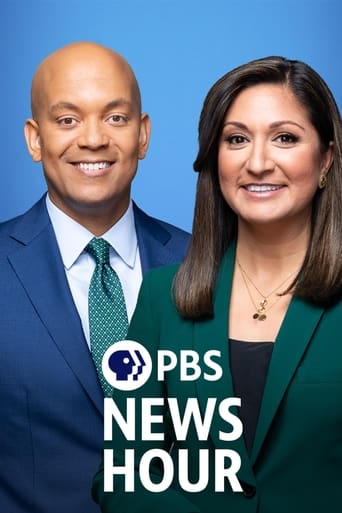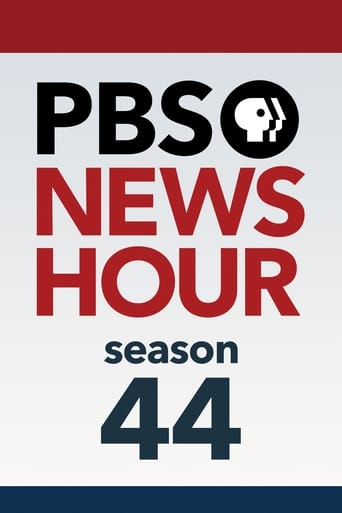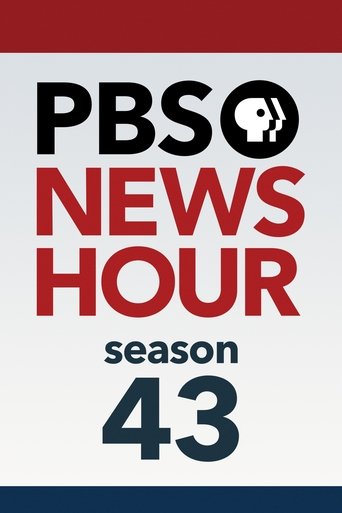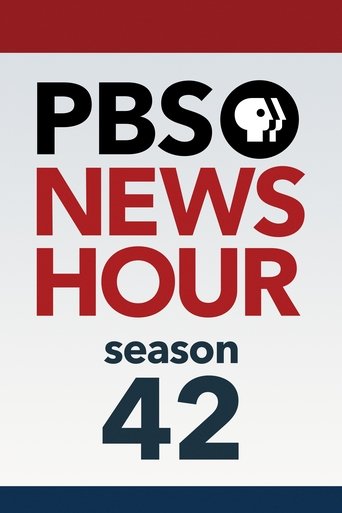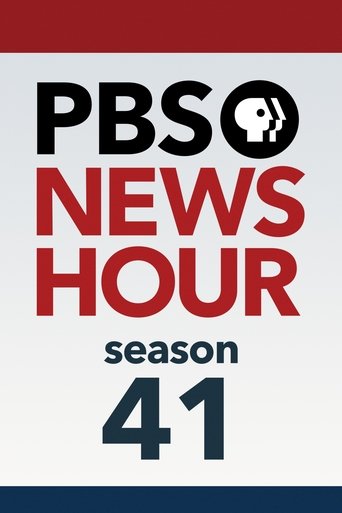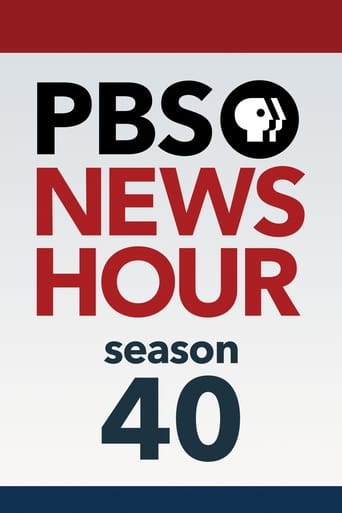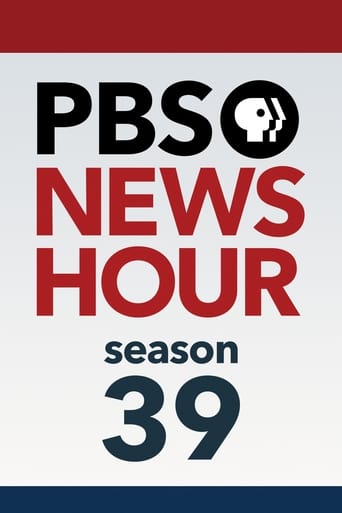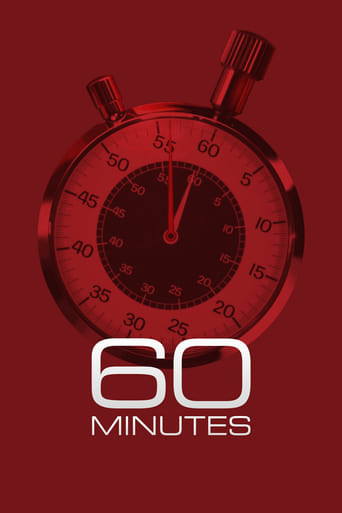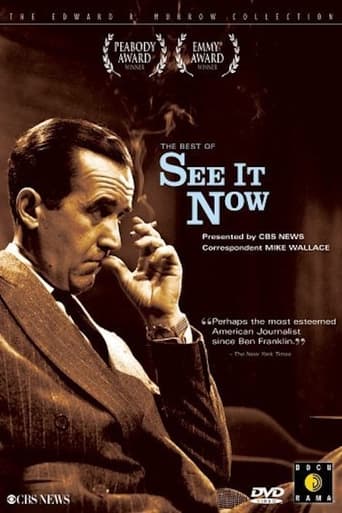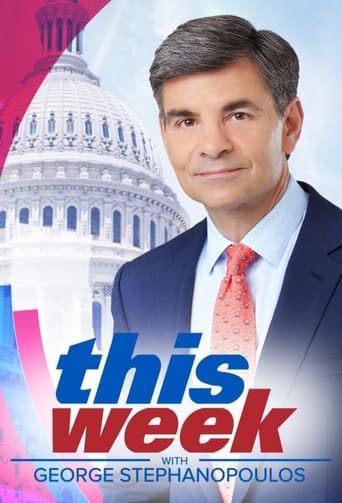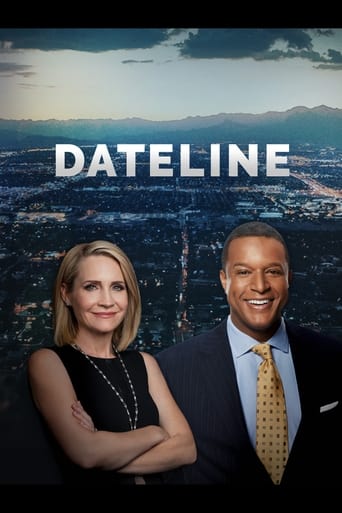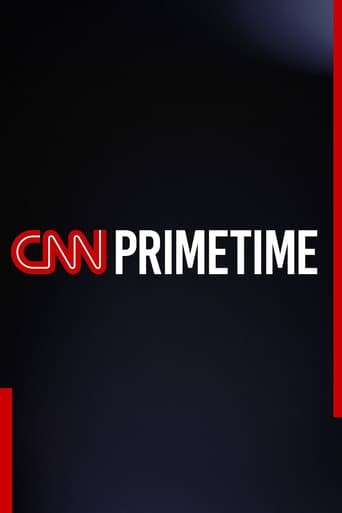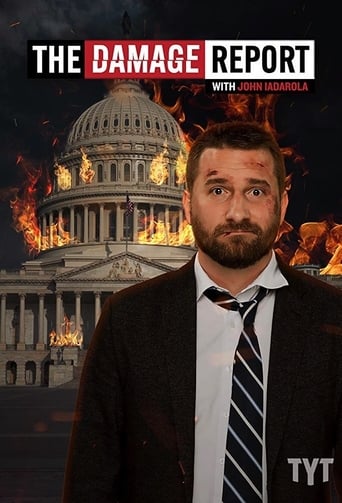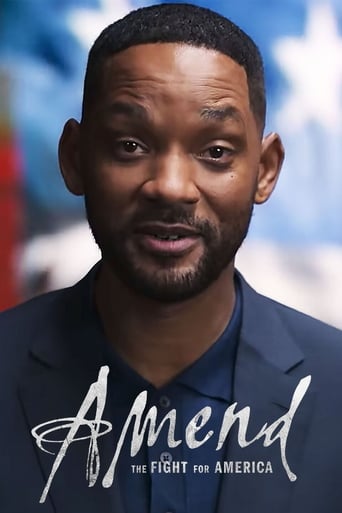PBS News Hour Season 47

America's first and longest running hour-long nightly news broadcast known for its in-depth coverage of issues and current events.
Watch NowWith 30 Day Free Trial!
PBS News Hour
1975 / TV-G
America's first and longest running hour-long nightly news broadcast known for its in-depth coverage of issues and current events.
Watch Trailer
With 30 Day Free Trial!
PBS News Hour Season 47 Full Episode Guide
Monday on the NewsHour, a miles-long Russian convoy is heading toward eastern Ukraine as civilians desperately try to escape ahead of an expected major military offensive. Then, the U.S. Postal Service gets a reboot with new laws aimed at fixing long-standing budget woes and shipping delays. Also, 50 years after Title IX became law girls are still experiencing discrimination in sports.
Friday on the NewsHour, Russian forces attack thousands of fleeing civilians at a Ukrainian rail station as the country's president warns of more atrocities. Then, economists sound the alarm over cryptocurrency's volatility as the future of digital assets remains in question. Also, David Brooks and Jonathan Capehart consider Ketanji Brown Jackson's confirmation and restrictive new abortion laws.
Thursday on the NewsHour, Western nations pledge more military aid for Ukraine as investigators gather additional evidence of war crimes, including Russia's apparent use of civilians as human shields. Then, Judge Ketanji Brown Jackson becomes the first Black woman elevated to the Supreme Court. Also, the former Soviet state of Moldova welcomes refugees from Ukraine but worries about what's next.
Wednesday on the NewsHour, Russia refocuses attacks in Ukraine as Western nations announce more sanctions in response to the atrocities against civilians. Then, U.S. lawmakers grill oil executives about the sharp rise in gas prices that are squeezing Americans' wallets. Also, multiple states across the nation advance legislation prohibiting certain literature, highlighting the cultural divide.
Tuesday on the NewsHour, Ukraine's president speaks to the United Nations as Russian forces refocus their attacks and more atrocities are uncovered. Then, the Biden administration, joined by former President Obama, proposes an expansion of the Affordable Care Act. Also, hundreds of thousands of people in the U.S. live in legal limbo because they are not recognized as citizens of any nation.
Monday on the NewsHour, international outrage grows over atrocities apparently committed by Russian forces in Ukraine. Then, a UN panel on climate change calls for a drastic shift away from fossil fuels to avoid a catastrophic global temperature increase. Also, prehistoric human tracks in New Mexico have the potential to upend conventional wisdom about how long humans have inhabited North America.
Friday on the NewsHour, Russia claims Ukrainian air forces struck a fuel depot inside Russia as peace talks make little progress. Then, China orders the millions of residents of Shanghai to shelter in place, testing its zero-COVID policy. Also, David Brooks and Jonathan Capehart weigh in on the Biden administration's changing immigration policy and the probe into the Capitol insurrection.
Thursday on the NewsHour, Russia repositions some troops but increases attacks in the Ukraine's south as civilians resort to desperate attempts to evacuate from the war zone. Then, President Biden announces plans to release 1 million barrels from the nation's Strategic Petroleum Reserve in an effort to lower gas prices. Also, we discuss the latest on the Jan. 6 probe with Rep. Zoe Lofgren.
Wednesday on the NewsHour, attacks on Ukrainian cities persist despite Russian pledges to de-escalate as the number of civilians displaced by the war grows. Then, teachers in Florida face new restrictions after the "Don't Say Gay" bill is signed into law. Also, how inconsistent data collection and reporting masked the pandemic's effect on Native Hawaiian and Pacific Islander communities.
Tuesday on the NewsHour, Russia and Ukraine discuss a potential path to peace as Ukrainian forces retake a critical Kyiv suburb. Then, an anti-lynching bill bearing the name of slain teen Emmett Till is signed into law by the president nearly 70 years after his murder. Also, Rep. Adam Schiff talks about the probe into former President Trump as the committee on the Capitol attack gathers evidence.
Monday on the NewsHour, Russia makes no significant gains in Ukraine as fierce fighting continues in several major cities and peace talks are set to resume. Then, we speak to Vladimir Putin's spokesman about the uncertain future of Russia's ongoing conflict with Ukraine. Also, people of color with eating disorders face additional cultural and medical challenges in confronting their conditions.
Friday on the NewsHour, Ukrainian civilians endure Russia's attacks as President Biden visits Poland and Western leaders discuss reducing dependence on Russian energy. Then, scientists and industry executives look to geothermal energy as a viable alternative to fossil fuels. Also, David Books and Jonathan Capehart discuss the president's handling of war in Ukraine and Supreme Court hearings.
Thursday on the NewsHour, Ukrainian forces claim to sink a Russian ship in the Black Sea as President Biden and other world leaders hold emergency meetings, pledging more humanitarian aid. Then, the mass exodus of Ukrainians strains the capacity of nearby nations, including in neighboring Moldova. Also, several states resort to calling in the National Guard to mitigate the shortage of teachers.
Wednesday on the NewsHour, Kyiv is hit by a new wave of Russian shelling as civilians bear the brunt of the assault on Mariupol in the increasingly deadlocked conflict. Then, former Secretary of State Madeleine Albright, the first woman to ever hold the position, passes away. Also, Supreme Court nominee Ketanji Brown Jackson faces another round of interrogation from the Senate Judiciary Committee.
Tuesday on the NewsHour, Ukraine claims to retake a critical Kyiv suburb as Russia intensifies air assaults and a prominent Kremlin critic has his prison sentence extended. Then, Supreme Court nominee Ketanji Brown Jackson defends her record as a judge before the Senate Judiciary Committee. Also, Russia's war in Ukraine disrupts worldwide food prices and supply with poorer countries hit hardest.
Monday on the NewsHour, Ukrainian forces reject demands for surrender in Mariupol as civilians continue to suffer the worst of Russian bombardments of cities. Then, as millions of Ukrainians flee their homeland, we speak to Poland's ambassador to the U.S. about the refugee situation and the war. Also, President Biden's Supreme Court nominee faces the scrutiny of the Senate Judiciary Committee.
Friday on the NewsHour, Russian forces strike an aircraft facility in western Ukraine as civilians continue to come under attack and the West's sanctions hamstring Russia's economy. Then, American basketball star Brittney Griner's detention in Russia raises questions about political prisoners. Also, David Brooks and Jonathan Capehart consider the U.S. response to war in Ukraine and COVID funding.
Thursday on the NewsHour, Russia's push to capture major Ukrainian cities stalls as the civilian costs grow more pronounced amid indiscriminate shelling. Then, Dr. Anthony Fauci weighs in on pandemic funding and whether an uptick in COVID cases globally could be a harbinger for the U.S. Also, museum officials scramble to save priceless artifacts as Russia's war in Ukraine damages cultural sites.
Wednesday on the NewsHour, Ukrainian President Volodymyr Zelensky implores Congress to increase support in the battle against Russia. Then, we speak with Senate Minority Leader Mitch McConnell about the war in Ukraine and President Biden's Supreme Court nominee. Also, a year after deadly shootings at an Atlanta-area spa Asian Americans continue to face physical and verbal abuse nationwide.
Tuesday on the NewsHour, Russian forces escalate their bombardment of Kyiv as civilian casualties mount, and we speak with the former U.S. ambassador to Ukraine about Russian motives and Ukrainian resistance. Then, the White House and Congress spar over COVID-19 funding, and we look at how COVID-19 is straining a mental healthcare system already under-resourced.
Monday on the NewsHour, Russia forces edge closer to Ukraine's capital as the bombardment of cities across the country continues and civilian suffering intensifies. Then, millions of Ukrainian refugees face a bleak and uncertain future after escaping the brutal war in their homeland. Also, despite a return to normal for many Americans COVID-19 continues its deadly spread.
Friday on the NewsHour, Russian forces widen their offensive into western Ukraine as they continue to inflict deadly strikes on other parts of the country, turning residential areas into ruins. Then, the U.S. bans more Russian imports and a growing number of companies close operations in Russia. Also, Jonathan Capehart and Gary Abernathy discuss the domestic impact of Russia's assault on Ukraine.
Thursday on the NewsHour, Russian forces continue bombarding Ukrainian cities, slowly advancing into new territory, as humanitarian aid struggles to reach civilians most in need. Then, Vladimir Putin tightens his grip on Russian news media to further spread propaganda about the war in Ukraine. Also, a new report reveals that minority groups were significantly undercounted in the 2020 census.
Wednesday on the NewsHour, evacuations from Ukraine become more desperate as Russian shelling continues on civilian targets. Then, we examine the long career of Russia's leader from his beginnings in the KGB to his increasingly totalitarian rule as president. Also, Congress moves forward on major legislation including government funding, aid for Ukraine and U.S. Postal Service reform.
Tuesday on the NewsHour, President Biden announces a ban on Russian oil as sluggish evacuations continue and Ukrainians fortify the cities Russia could attack next. Then, we examine the critical events that led up to Russia's invasion amid rampant revisionist history coming from the Kremlin. Also, on International Women's Day, a new UN report details the gender discrimination women still face.
Monday on the NewsHour, Russia offers to open evacuation corridors, a move widely dismissed as a ruse, while bombing continues and Ukrainians defiantly face the onslaught. Then, Ukrainian leaders ramp up calls for a no-fly zone, but what would that move mean for the U.S. and NATO countries? Also, Tamara Keith and Amy Walter discuss growing calls for the U.S. to ban imports of Russian oil.
Friday on the NewsHour, Russia forces attack a nuclear power plant risking a major disaster as talks of a ceasefire fizzle. Then, United States jobs growth exceeds expectations, and unemployment drops, but inflation still grips the overall economy. Also, David Brooks and Jonathan Capehart discuss the war in Ukraine and President Biden's priorities following his State of the Union address.
Thursday on the NewsHour, Russian forces stall in their push toward Kyiv as brutal shelling continues elsewhere in Ukraine, while police in Russia crack down on independent media. Then, we explore how Ukraine's President Zelensky became the country's leader at a moment of crisis. Also, the House Jan. 6 committee lays out potential criminal conspiracy charges against former President Trump.
Wednesday on the NewsHour, Russian armed forces bombard Ukrainian cities with heavy shelling as Ukraine's president warns that Russia is trying to erase his country's history. Then, an increasing number of Russians are protesting the invasion of Ukraine despite the repercussions they could face. Also, on the heels of his address to Congress, President Biden takes his message on the road.
Tuesday on the NewsHour, resistance holds strong in Ukraine even as Russia struck civilian targets in its increasingly brutal shelling. Then, President Biden prepares to deliver his first official State of the Union address amid the war in Ukraine, the pandemic and economic uncertainty.
Monday on the NewsHour, Ukraine fiercely resists advancing Russian forces as the two countries engage in diplomatic relations and the West levies tough sanctions. Also, the UN releases a dire climate report highlighting faster environmental degradation than had been anticipated, and Tamara Keith and Amy Walter on the war in Ukraine and its impact on President Biden's State of the Union address.
Friday on the NewsHour, as Russian forces close in on Kyiv and Ukrainians struggle to repel the invasion, we talk to the head of NATO about the West's response. Then, President Biden chooses federal Judge Ketanji Brown Jackson to fill the coming U.S. Supreme Court vacancy. Also, new CDC guidelines recommend that Americans in most parts of the country can safely stop wearing masks indoors.
Thursday on the NewsHour, Russian airstrikes bombard Ukraine as ground forces advance on the nation's capital, and elsewhere, forcing civilians to flee for their safety. Then, U.S. and European leaders announce new, harsher economic sanctions on Russia. Also, the three Minnesota officers who failed to intervene in George Floyd's death are found guilty of violating his civil rights.
Wednesday on the NewsHour, the U.S. warns Russia is prepared to launch a full-scale invasion as Ukrainian forces mobilize for a possible war, new reports indicate wildfires will drastically increase in the coming years while dangerous methane emissions from the energy sector are being underreported, and millions of older Americans decide to leave the workplace early during the pandemic.
Tuesday on the NewsHour, the U.S. ramps up sanctions on Russia for what President Biden called the beginning of an invasion of Ukraine, but will the measures be enough to deter Vladimir Putin? Then, a jury finds the three men who murdered Ahmaud Arbery guilty of federal hate crimes. Also, multiple cyclones and historic drought wreak havoc on Madagascar and bring widespread food insecurity.
Monday on the NewsHour, Russia's leader Vladimir Putin orders troops to eastern Ukraine after recognizing two separatist regions as independent, prompting Western nations to impose sanctions. Also, as airlines grapple with pandemic disruptions their workers contend with unruly passengers, and a journalist delves into new public documents to craft a comprehensive history of the Watergate scandal.
Friday on the NewsHour, President Biden says war in Ukraine will come soon as the U.S. blames Russian-backed separatists for inflaming conflict in eastern Ukraine. Then, China claims to allow athletes to voice their views on the internet but critics remain skeptical, and David Brooks and Jonathan Capehart weigh the congressional response to Russian aggression and gun violence in the United States.
Thursday on the NewsHour, shelling in eastern Ukraine sparks dire warnings that Russia could be concocting a pretext for invasion. Then, we ask Dr. Anthony Fauci about the uncertain future of COVID-19 amid changing of public health guidelines. Also, the other former police officers charged in the killing of George Floyd are cross-examined about whether they should have intervened.
Wednesday on the NewsHour, Ukrainians celebrate a day of national unity as the threat of Russian invasion remains. Then, several members of the San Francisco Board of Education are ousted in what opponents decry as misplaced priorities during the pandemic. Also, many Black students find their voices are constricted amid a wave of regulations limiting how race is taught in public schools.
Tuesday on the NewsHour, President Biden warns a Russian invasion of Ukraine is still possible despite Moscow's claims that it's pulling back some of its troops. Then, we look at the life and legal work of a California judge who appears to be on a short list for the U.S. Supreme Court vacancy. Also, African Americans and African immigrants in Minnesota coalesce to amplify their voices.
Monday on the NewsHour, the U.S. moves its embassy operations out of Kiev as Russia's aggression toward Ukraine destabilizes the region before an expected invasion. Then, the Olympic Committee allows a Russian figure skater to compete despite testing positive earlier for a banned substance. Also, we examine the career of one of the judge's on President Biden's short list for the Supreme Court.
Friday on the NewsHour, the U.S. issues its starkest warning yet about war in Ukraine and urges Americans to leave in the next 48 hours. Then, ongoing trucker blockades at the Canadian border hamstring the auto industry and have economic impacts on both sides of the border. Also, David Brooks and Jonathan Capehart consider the widening divide in the Republican Party over the Jan. 6 insurrection.
Thursday on the NewsHour, Russia initiates massive military drills along Ukraine's border, stoking fears of an invasion. Then, a congressional committee launches an investigation into documents recovered from Mar-a-Lago and whether former President Trump attempted to destroy records. Also, the loss of seagrass and environmental collapse leads to an unprecedented number of manatees dying.
Wednesday on the NewsHour, parents remain divided on face coverings in schools as more states repeal their requirements amid declining COVID infections. Then, a new report details the scale of the opioid crisis and the daunting challenge of cracking down on drug trafficking. Also, we look at how inflation is disproportionately impacting senior citizens and young people trying to make ends meet.
Tuesday on the NewsHour, France's president acts as mediator between Russia and Ukraine in an effort to prevent war in Eastern Europe, the Supreme Court sides with the Alabama Republicans in a redistricting case despite a lower-court ruling that the new map disadvantaged Black voters, and China aims to sue the Olympic Games to bolster its reputation but activists cite rampant repression.
Monday on the NewsHour, U.S., European and Russian leaders hold separate high-level talks in ongoing attempts to defuse tensions over Ukraine. Also, jury selection begins in the federal hate crimes trial of the three men convicted of murdering Ahmaud Arbery, and pharmacists struggle to keep up with demand for COVID vaccines and other services amid widespread staffing shortages.
Friday on the NewsHour, the White House chief of staff discusses the latest jobs report and President Biden's domestic priorities. Then, the Chinese government continues its strict and ambitious quarantine system to try and keep the coronavirus out of the Olympics. Also, Jonathan Capehart and Gary Abernathy consider the president's Federal Reserve board nominees and efforts to combat rising crime.
Thursday on the NewsHour, we examine the collateral damage and the future of the fight against ISIS after the terrorists group's leader is killed in a U.S.-led raid. Also, senators weigh the need for sanctions and express concerns after receiving a classified briefing on Russian aggression against Ukraine, and Afghan women demand the right to go to school and work amid brutal Taliban repression.
Wednesday on the NewsHour, the U.S. approaches 900,000 COVID deaths with a mortality rate far higher than other wealthy nations, as the vaccination campaign stagnates. Then, a former NFL head coach sues the league for racial discrimination after being fired by the Miami Dolphins, and scientists uncover rampant COVID infections in white-tailed deer, raising questions about the pandemic's future.
Tuesday on the NewsHour, vaccines could soon be available for children under age 5 raising hopes and new questions for parents. Also, diplomatic efforts are intensifying across Europe amid the threat of a Russian invasion in Ukraine, and new reports reveal former President Trump proposed seizing voting machines in an attempt to overturn his 2020 election defeat.
Monday on the NewsHour, the U.N. Security Council convenes to discuss Ukraine as tens of thousands of Russian troops remain positioned along its border, the U.S. calls for direct negotiations with North Korea on its weapons programs following a test of a missile that could reach Guam, and unpredictable weather patterns worsened by climate change threaten long-standing traditions in hockey.
Friday on the NewsHour, Russia says it won't start a war in Ukraine but warns Western powers against ignoring its interests. Then, Texas' restrictive new voting law sparks confusion, forcing election officials to reject hundreds of applications for mail-in ballots. And, David Brooks and Jonathan Capehart consider the legacy of Supreme Court Justice Stephen Breyer and what his retirement may mean.
Thursday on the NewsHour, Justice Breyer's retirement makes way for President Biden to fulfill his campaign promise and nominate the first Black woman to the Supreme Court. We examine the potential causes and solutions as many U.S. Cities grapple with a steady increase in crime. We return to tornado-ravaged Western Kentucky to examine the lingering aftermath and the difficult path toward healing.
Wednesday on the NewsHour, Justice Stephen Breyer will announce he is stepping down from the Supreme Court, setting up a senate confirmation battle for his replacement. Then, the Federal Reserve signals it will soon raise interest rates to counteract surging prices across the economy. And, pandemic-induced staffing shortages and delivery delays plague the already beleaguered U.S. Postal Service.
Tuesday on the NewsHour, the United States delivers more military aid to Ukraine as fears of a Russian invasion remain high. Then, the fight over reapportioning congressional districts grows more intense amid lawsuits, vetoes and widespread gerrymandering. And, under Taliban rule, the lack of opportunity for Afghan girls forces one doctor to choose between her patients and her children.
Monday on the NewsHour, the United States puts thousands of troops on heightened alert as the threat of Russian invasion grows more severe. Then, markets take a major tumble amid possible interest rate hikes and ongoing inflation. And, Tamara Keith and Amy Walter discuss both parties' moves to punish their own members and President Joe Biden's pledge to get out and talk to voters more.
Friday on the NewsHour, the U.S. and Russia remain in a heated standoff over Ukraine after a meeting between the American secretary of state and his Russian counterpart. Then, how Taliban rule, a historic drought and bitter cold worsen food scarcity in Afghanistan. And, David Brooks and Jonathan Capehart take stock of the president's first year and the failed voting rights push in Congress.
Thursday on the NewsHour, we look at what's gone well, and what hasn't over the past 365 days of the Biden administration. Then, disagreements between NATO allies prompt widespread uncertainty as the threat of a renewed Russian invasion looms over Ukraine. And, jury selection begins in the federal case against three former Minneapolis police officers charged in the murder of George Floyd.
Wednesday on the NewsHour, President Joe Biden defends his government's track record amid worsening approval ratings and a host of setbacks one year after his inauguration. Then, Democrats' push for voting rights legislation faces stiff opposition in the evenly divided U.S. Senate. And, the secretary of state reassures Ukraine of U.S. support but warns Russia may launch an attack at any moment.
Tuesday on the NewsHour, the U.S. Senate begins debate on voting rights but Republicans unanimously oppose the legislation and efforts to allow a simple majority to rule. Then, calls for new approaches to managing the virus grow louder as U.S. hospitals struggle and parents navigate an uncertain time. And, skyrocketing inflation grips Turkey as its president implements unorthodox countermeasures.
Monday on the NewsHour, as the nation honors Martin Luther King Jr., the civil rights leader's son makes the case for why Congress should pass new federal voting legislation. Then, authorities in the U.S. and U.K. Investigate why a British citizen held a rabbi and congregants hostage at a Texas synagogue. And, we ask a doctor to spell out best practices for masking and testing amid COVID spikes.
Friday on the NewsHour, health systems buckle under the latest surge of hospitalizations from COVID-19 as schools struggle to keep the virus at bay. Also, millions of Kenyans face hunger and ethnic conflict exacerbated by the global climate crisis, and David Brooks and Jonathan Capehart consider the push in Congress for voting rights and the Supreme Court's decision on vaccine mandates.
Thursday on the NewsHour, the Supreme court blocks vaccine requirements for large businesses but permits them for most health care workers. Also, a far-right militia leader is arrested on the first seditious conspiracy charges for the Capitol riot, voting right legislation advances in the House, and the threat of Russian military escalation looms large as diplomatic efforts make little progress.
Wednesday on the NewsHour, calls for new approaches to combat COVID-19 grow louder as the number of infections and hospitalizations climb daily. Then, we speak to the president of a regional Federal Reserve bank as inflation increases at its fastest rate since the 1980s. And, leaders from Russia and NATO meet as a threat of an invasion hangs over eastern Ukraine.
Tuesday on the NewsHour, President Biden and Vice President Harris make a new and urgent push for voting rights legislation amid an uphill fight in Congress. Also, COVID hospitalizations reach a record high as the White House rushes to ramp up at-home testing, and we look at a Chinese city under some of the world's toughest COVID restrictions to examine the human toll of a zero-COVID policy.
Monday on the NewsHour, some medical experts warn the CDC's latest guidance on COVID-19 is creating confusion, as infections, hospitalizations and deaths increase across the country. Then, diplomats from the U.S. and Russia meet amid stark disagreements over Ukraine, and deepening polarization prompts efforts to bridge the gap in U.S. politics by tapping into people's shared experiences.
Friday on the NewsHour, the U.S. Supreme Court hears arguments on the federal government's vaccine mandates for health care workers and large employers. Then, Kazakhstan's leader vows to quash unrest as violent protests erupt against the government's authoritarian policies. And, David Brooks and Jonathan Capehart weigh in on the way forward after the nation remembers the Jan. 6 Capitol attack.
Thursday on the NewsHour, President Joe Biden urges Americans to reject lies about the 2020 election and defend America's democratic ideals. Then, we take an hour-by-hour look at the events of Jan. 6 and speak to a panel of seasoned political observers about its aftermath. And, an exclusive interview with Vice President Kamala Harris on the Capitol attack and the White House's pandemic strategy.
Wednesday on the NewsHour, how politicians and Trump supporters have spread false narratives about what happened on Jan. 6. Then, a record number of U.S. children are hospitalized with COVID-19, as doctors warn the risk to young children isn't being taken seriously enough. And, a museum's decades-long effort to restore a 1,500-year-old statue of the Hindu god Krishna.
Tuesday on the NewsHour, U.S. school districts are forced again to choose between in-person and remote learning amid the surge in COVID cases. Then, how the growth of far-right groups led to the Jan. 6 Capitol attack and continues to threaten American democracy. And, what Theranos founder Elizabeth Holmes' fraud conviction means for other tech startups that often rely on high-risk investments.
Monday on the NewsHour, U.S. schools weigh the risks, and the Food and Drug Administration approves booster shots for more children as COVID cases soar. Then, Americans reflect on what led people from their communities to take part in the Jan. 6 attack on the Capitol a year ago. And, a new law aims to keep patients from getting hit with unexpected and exorbitant charges for medical treatment.
Free Trial Channels
Seasons


